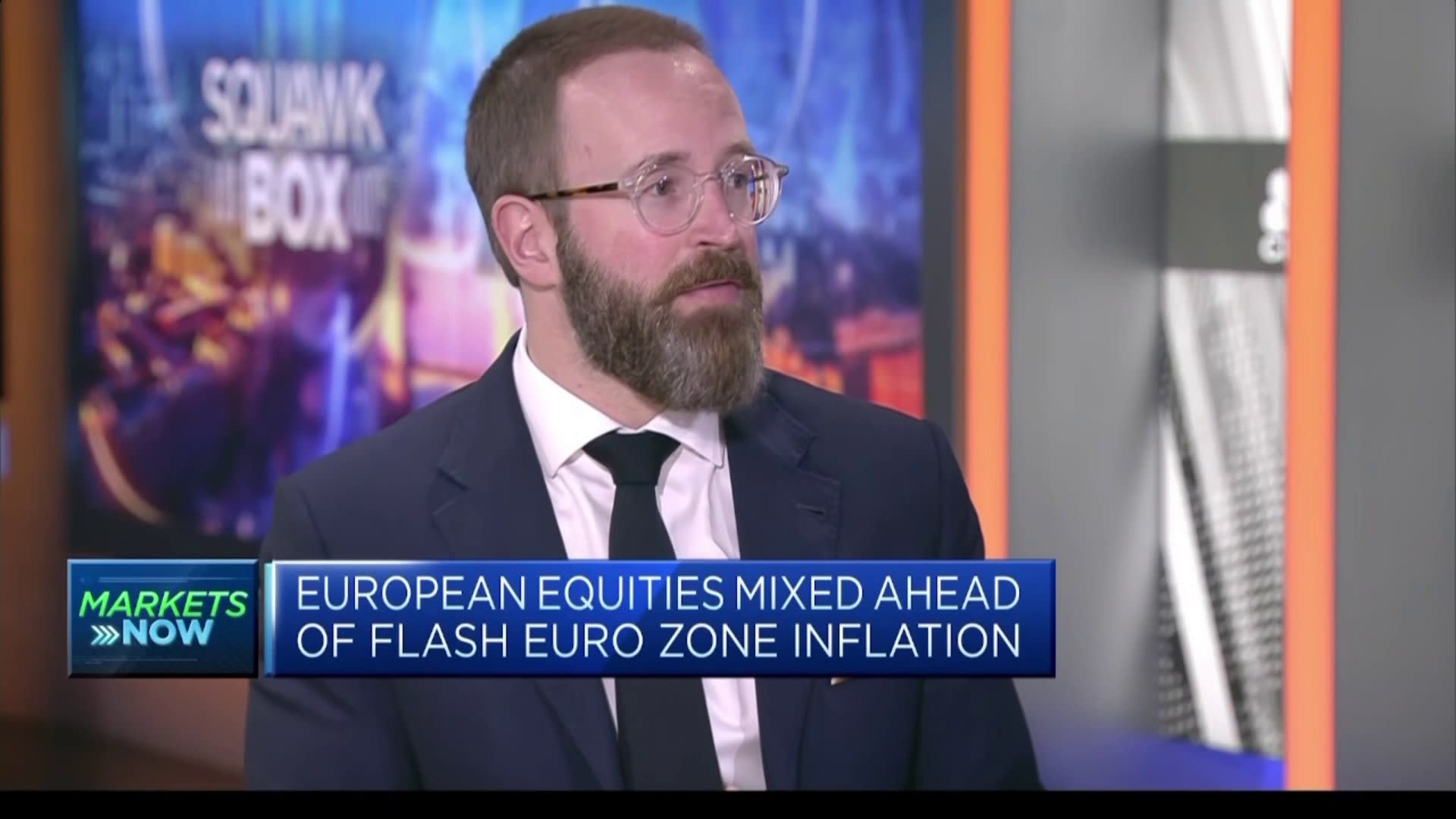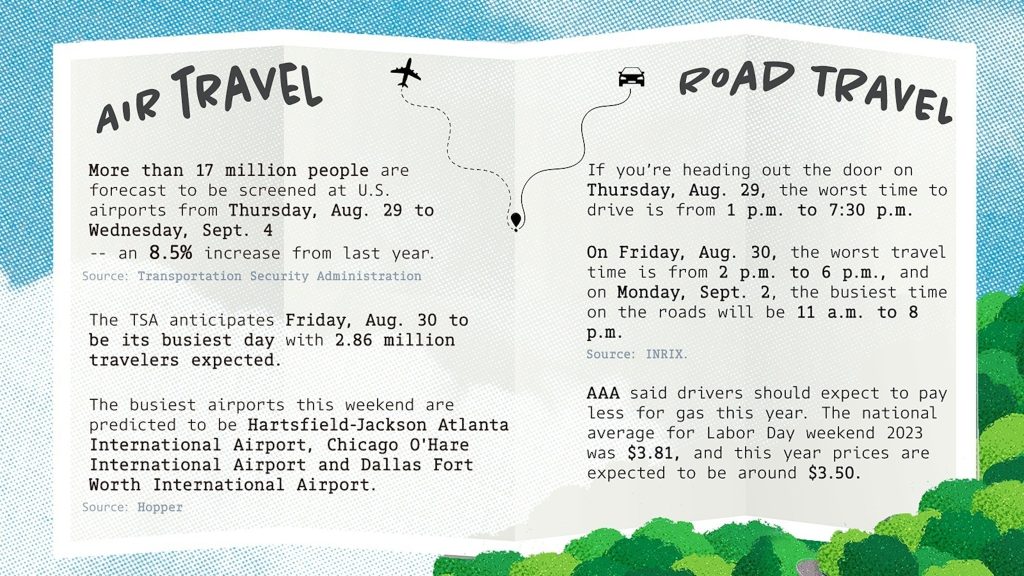A woman takes a selfie photo, with the Eiffel Tower in the background, at Surcouf street in Paris, on July 23, 2024, ahead of the Paris 2024 Olympic Games.
Mauro Pimentel | Afp | Getty Images
Euro zone inflation dropped to a three-year low of 2.2% in August, flash figures from statistics agency Eurostat showed Friday, boosting expectations for a September rate cut from the European Central Bank.
The decline from 2.6% in July was in line with the forecast of economists polled by Reuters.
The core rate — excluding the more volatile components of energy, food, alcohol and tobacco — fell to 2.8% in August from 2.9% in July, also matching a Reuters poll.
The euro continued to slide against sterling following the release, trading 0.1% lower at 0.8408 pounds. The euro nudged 0.04% higher against the U.S. dollar to $1.1083 as investors gear up from a September rate cut from the Federal Reserve in its first step toward monetary easing in the current cycle.
It come after price rises in Germany, the euro area’s biggest economy, cooled more than expected to 2% for the month, on a euro zone harmonized basis.
Economists at ING expect euro zone core inflation to remain stubbornly above 2.5% for the rest of the year amid stickiness in goods and services.
Markets have fully priced for the ECB to lower interest rates by another 25 basis points in September, after the institution made its first rate reduction in June, and for another 25 basis point cut before the end of the year.
Kyle Chapman, foreign exchange markets analyst at Ballinger Group, said there were nonetheless details in the release that would concern ECB policymakers, particularly services inflation at 4.2%.
“The positive headline is purely down to energy price effects, and it masks the fact that little real progress in underlying pressures has been made here,” Chapman said in a note.
“Now at the highest level since last October, services inflation has been glued to the 4% area for almost a year now and has headed in the wrong direction since the spring.”
Speaking ahead of the latest data print, Ed Smith, co-chief investment officer at Rathbones Asset Management, told CNBC’s “Squawk Box Europe” on Friday the central bank was on track for further rate cuts, noting ECB President Christine Lagarde’s focus on wage inflation.

“Negotiated wages are a big thing in the euro zone, [they] account for about 80% of the workforce [who] have wage growth negotiated for them. Big drop in euro zone-wide negotiated wages in the second quarter, falls in other indicators like the Indeed.com listings … the ECB’s telephone survey of businesses … also points to falling wage intention.”
“But there is some stickiness, the latest [purchasing managers’ index] numbers, service sector surveys showed some stickiness in the price components of that,” he added, noting that would keep some ECB voting members cautious.

